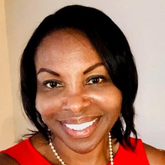Stay Ready: Attending to Implicit Bias in Health Care

“If you stay ready, you ain’t gotta get ready!” is a colloquialism used in Black culture, which has become something of a motivational mantra in inspirational, life coaching circles and journal articles.[1] This axiom issues a clarion call for people to always be ready to bring their best selves forward, especially when the circumstance demands the best.
Always being at your best, though, can be an arduous task. What makes “staying ready” extremely difficult, especially for health care professionals, is the fact that being well prepared does not always eliminate the potential for communicators to find themselves stuck in thorny conversations. Oftentimes, verbal exchanges between health care professionals and patients include unconscious, unintentional responses to stimuli that can contribute to derailing a meaningful conversation. These unconscious, unintentional responses are implicit biases. According to the IHI, “implicit bias is the bias in judgment and/or behavior that results from subtle cognitive processes (e.g., implicit attitudes and implicit stereotypes) that often operate at a level below conscious awareness and without intentional control.”
"Oftentimes, verbal exchanges between health care professionals and patients include unconscious, unintentional responses to stimuli that can contribute to derailing a meaningful conversation."
Our own implicit biases can appear innocuous, given that they occur on a subconscious level and are usually invisible to us. However, when these subconscious biases surface in the context of America’s socially constructed caste system, they may convey unintended signals to the patient. This includes unconscious behaviors such as lack of warmth, feeling and acting rushed, not making eye contact or showing interest in the patient as a person (e.g., failing to ask open-ended questions about the patient’s life and concerns). For people of color who are accustomed to what are often called “microaggressions” in our health care system, these subtle behaviors speak volumes and signal the clinician’s unconscious negative bias. Not surprisingly, this can erode trust in the system and trust in the clinician.
How do we, as health care professionals, bring our best selves to the fore every time we engage a patient or family? How do we stay ready? More so than focusing on defining implicit bias, with its infinite number of examples, this blog post asserts that staying ready is all about being self-aware.
Be aware of your implicit biases.
In order to become aware of implicit bias, we must engage in self-reflection about individual perceptions, attitudes, and behaviors toward (or against) groups of people unlike ourselves.
The existence of such bias has been confirmed through evidence-based assessments; and although implicit biases occur on a subconscious level and are unintentional, we can get a sense of our preferences for and against certain human attributes and qualities by taking the Harvard Implicit Association Test (IAT). The IAT measures attitudes and beliefs that may otherwise go unreported, due to the unwillingness or inability to report by an individual. Results may be especially interesting if they show that an individual has an implicit attitude that they did not know about. (For more information, this website provides education about the project and what the IAT measures.) Knowing what IAT results reveal can be useful in developing clearer insights into which stimuli elicit certain responses. Additionally, moving from “racist socialization”, or the deliberate effort to acknowledge the reality of unconscious bias and act consciously to counter its influence on our behavior, is imperative.
"We believe the onus of eliminating health inequity and implicit bias belongs both to individuals and organizations."
According to Dr. Joy DeGruy, an internationally renowned researcher and educator whose work focuses on the intersection of racism, trauma, violence, and American chattel slavery, “racial socialization is the process whereby we come to know our strengths, understand the world in which we live, and position ourselves to thrive.” She further explains it as “a process whereby individuals are taught how to identify and deflect the potential negative effects of assaults, overt as well as covert.”[2]
We believe the onus of eliminating health inequity and implicit bias belongs both to individuals and organizations. Teaching and building strategies specific to ‘racial socialization’ within health care organizations is how we can eliminate these barriers and empower individuals within the system to provide care of uniform quality regardless of social determinants.
Be aware that medical professionals exhibit the same level of implicit bias as the wider population, and this bias measurably affects patient care.
This point is illuminated by Chloe FitzGerald and Samia Hurst’s examination of implicit bias in health care professionals through a systematic review of the literature.[3] Through this comprehensive assessment of implicit bias in medical professionals, their research concluded that medical professionals are not immune to the impact of implicit bias. Fifteen of the articles reviewed in this study utilized results from Harvard’s IAT test. The literature review also concluded that implicit biases lead to negative evaluations of patients based on irrelevant factors like race and gender. Biased evaluations lead to treatment disparities based on myths and impressions more so than on empirical data.
Be aware of the paucity of treatments for implicit bias.
Amanda Calhoun, MD, MPH, a third-year adult/child psychiatry resident at Yale School of Medicine, so eloquently writes about the pathophysiology of racial disparities and names the miseducation of health care providers as a central contributor to disparities in care quality. She does this to make a plea for education and training that identify the assiduous mechanism behind racial disparities in health care, of which implicit bias is akin to and may even be at its forefront.[4] Given that such biases and behaviors are cultivated through, and are learned ways of doing, being, and believing—sustained by structural barriers and systemic reinforcement—we remain hopeful that health care professionals will invest in our call to take action for deliberate change. This means unlearning and de-biasing through training and development of new associations—in contrast with antiquated stereotyping that benefit any group(s) while disadvantaging another.
"[W]e remain hopeful that health care professionals will invest in our call to take action for deliberate change."
Education and accountability can lead to a level of competency that facilitate critical thinking about conscious behaviors that may counterbalance unconscious bias. An example of such conscious behaviors is asking oneself during an encounter with a person of different race, ethnicity, age, sexual preference, or political persuasion: “Would I be treating this person differently if he or she were white (or younger or straight)?” Framing cultural competence as a standard of practice and aligning its significance to credentialing and board certifications would be a welcome next step in this call to action. Accountability fosters the seriousness of “readiness”, with the ultimate goal walking into the care setting equipped with: (1) knowledge about how learned unconscious biases disrupt patient-centered care, (2) awareness of your own biases, and (3) skills that enable self-monitoring to reduce the likelihood that implicit bias will influence practice behaviors
Be aware of your emotional work.
Dr. Kimberly Curseen, in a two-part CAPC blog post on implicit bias, shares a narrative in which she admits to failing to bring her best self to a patient and family she was called to serve. She acknowledges that her unconscious response to certain stimuli was the impetus behind the less than stellar care that she felt she delivered. But as Dr. Curseen processed her actions after the fact, she let us in on a profound truth. She had received very conscious signs—by way of her emotions—of her growing distress. Dr. Curseen’s surging emotions, left unchecked and unprocessed, harmed her ability to provide the standard of care to which she had long been accustomed.[5]
Her very vulnerable admission provides a two-fold lesson: 1) our unconscious biases often surface as emotions that we can actually become quite conscious of, and 2) it takes work to develop the ability to process our emotions in the moment. The ability to do such processing is critical to the idea of racial socialization, or as we prefer to put it: “staying ready.”
Citations
- ↩ Lega, F., Castellini, G.C. (2022), "If You Stay Ready, You Won't Have to Get Ready", Resilient Health Systems (European Health Management in Transition), Emerald Publishing Limited, Bingley, pp. 1-21.
- ↩ DeGruy Jay, Post Traumatic Slave Syndrome: America's Legacy of Enduring Injury and Healing, Joy Degruy Publications Inc, 2017.
- ↩ FitzGerald C, Hurst S. Implicit bias in health care professionals: a systematic review. BMC Med Ethics. 2017;18(1):19. Published 2017 Mar 1. https://bmcmedethics.biomedcentral.com/articles/10.1186/s12910-017-0179-8
- ↩ Calhoun A. The pathophysiology of racial disparities. N Engl J Med 2021; 384:e78 https://www.nejm.org/doi/full/10.1056/NEJMpv2105339
- ↩ Curseen, Kimberly. "Implicit Bias and Its Impact on Palliative Care (Part One)" and "Implicit Bias and Its Impact on Palliative Care (Part Two). Palliative in Practice (blog). June 2017. Accessed March 25, 2022. https://www.capc.org/blog/palliative-pulse-palliative-pulse-june-2017-implicit-bias-and-palliative-care-part-1/
Health professionals have a unique opportunity to lead in achieving health equity by establishing trust and alleviating suffering for historically oppressed or excluded patients. CAPC's Achieving Health Equity toolkit includes curated tools and resources to improve the quality of care provided to these patient groups, and move the needle on equity for all people living with serious illness.
View the Toolkit

